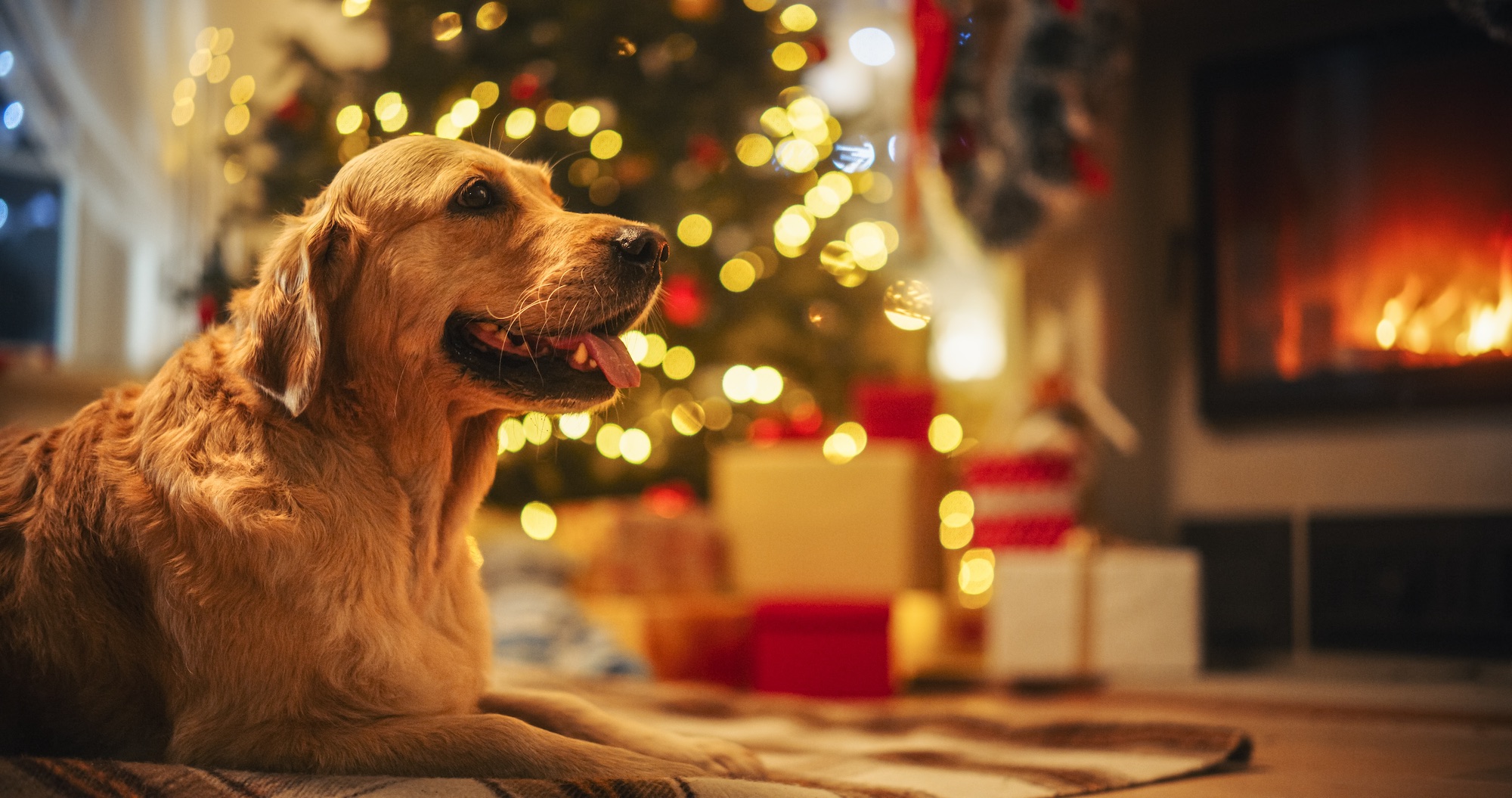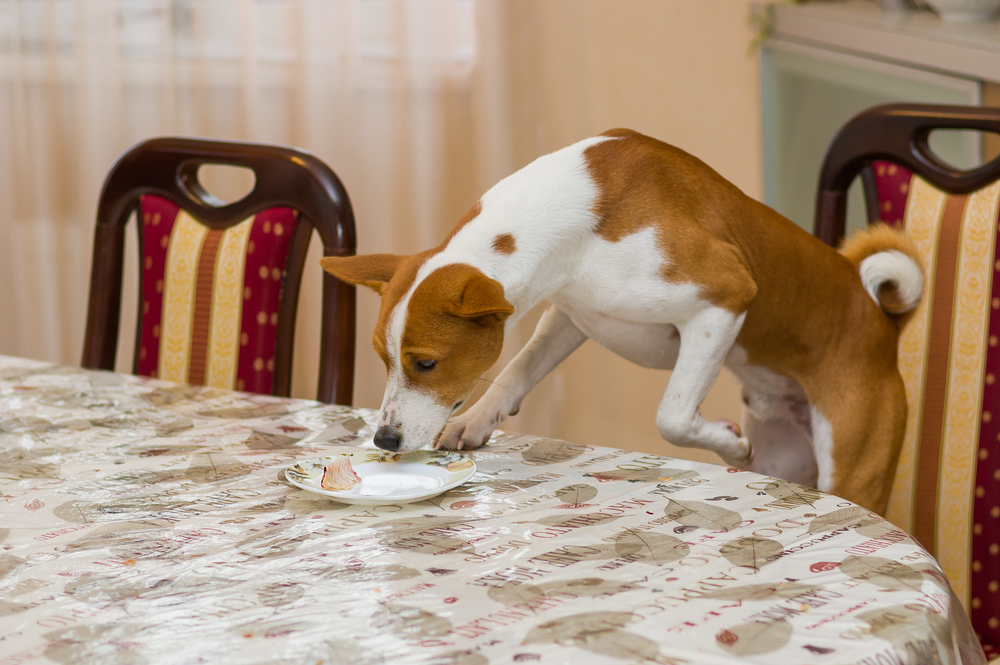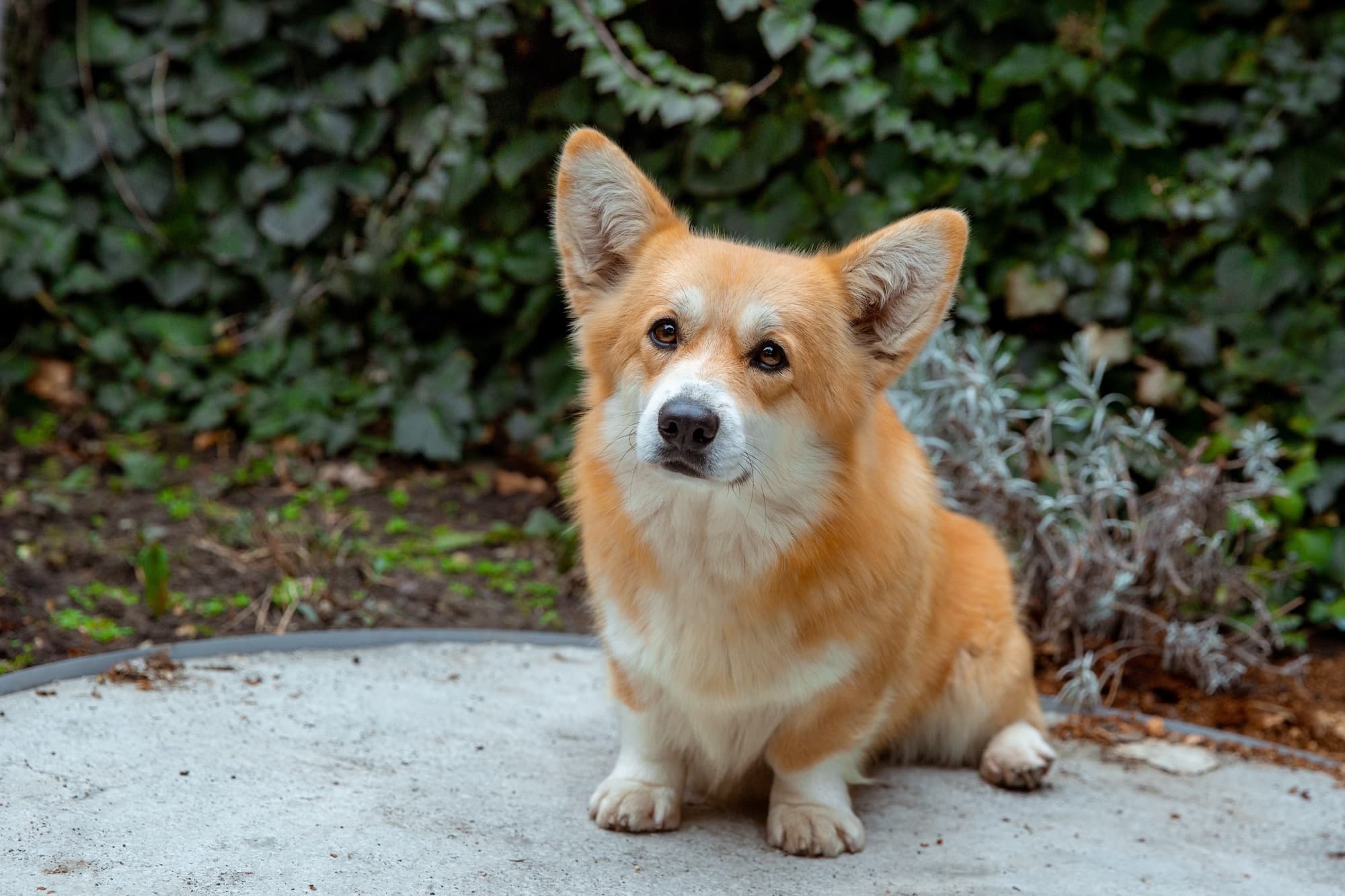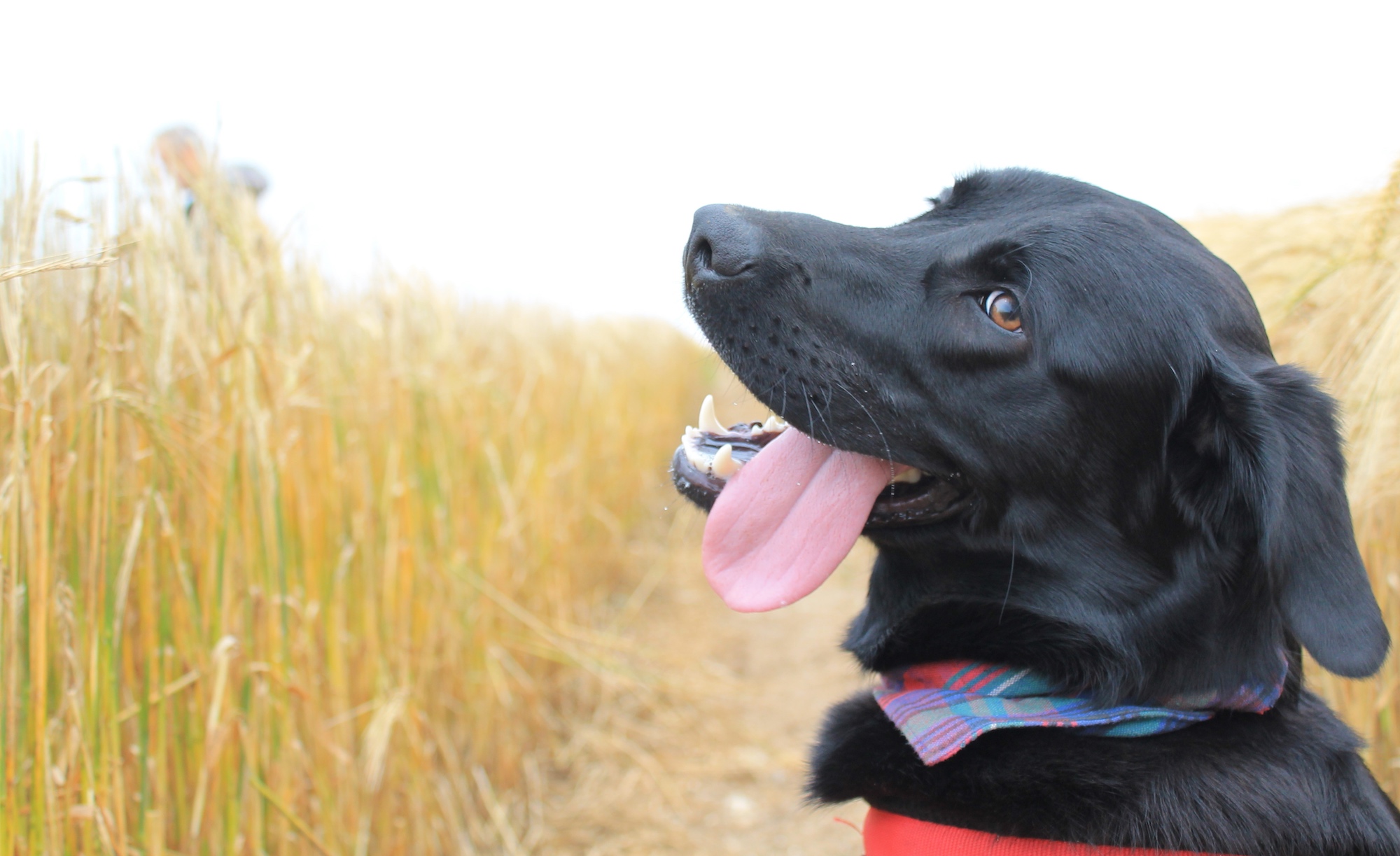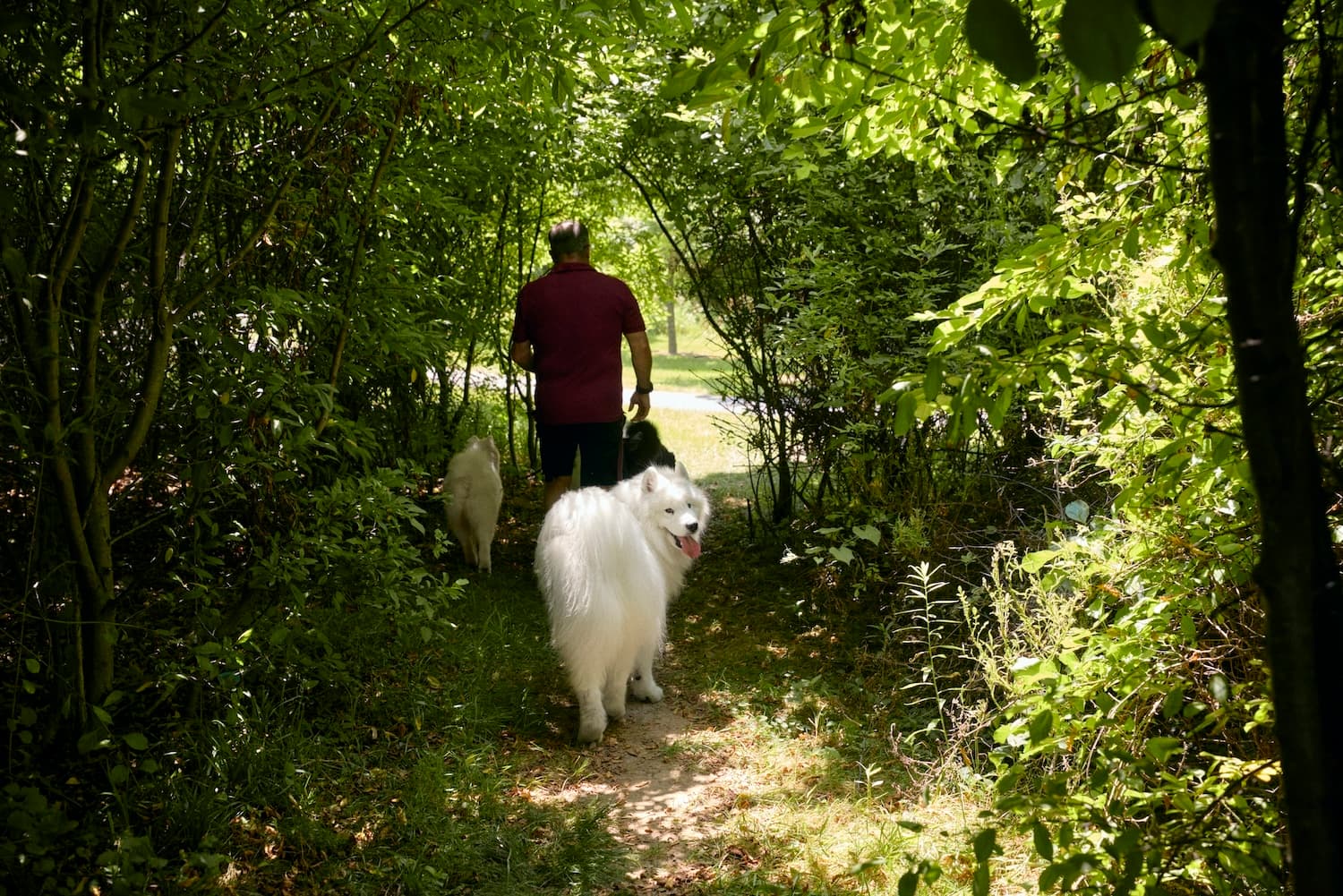The holidays are known as the most wonderful time of the year, yet they can also be stressful for everyone, including dogs. Disrupted routines caused by seasonal celebrations, houseguests, travel, and more can make the canine members of your household feel anxious—and then there are the potential health hazards from holiday decorations or well-intentioned guests sharing table scraps.
Luckily, we’ve got some tips for keeping dogs happy and safe while you enjoy the holiday season.
Holiday decorations
It’s fun to create a festive mood in your home, but some decorations can be harmful to your dog.
Be careful where you place lit candles, too, as pets can accidentally knock them over. As you hang lights and decorations, be mindful of cords and string, especially with curious puppies around. Chewing on cords can cause electrocution; or a dog might get injured if they trip over a wire. When decorating, make sure that cords are tucked away and less accessible. Use tape, cord covers, and cord organizers as needed.
Holiday gifts
As you’re wrapping presents, remember to avoid leaving food gifts, such as chocolate, cheese, or cake, on the floor; keep them out of reach of your dog at all times. Stuffed animals intended for children are attractive chewing targets for your dog, and small parts may be harmful if swallowed. Toys with batteries are especially dangerous if swallowed—the zinc in batteries can cause renal damage, for instance—so keep them in a safe place. Elaborate wrapping accessories, such as ribbons and bows, can also be hazardous if consumed. If presents under a tree are a holiday staple for you, try to keep them wrapped plainly, with any dangerous gifts stored away until the big day. Otherwise, keep gifts on a table or desk where your dog can’t reach them.
Trees and trimmings
A tipped over tree is a hazard to everyone. Secure your holiday tree to keep it from falling over, and consider placing it in a corner of a room so it isn’t an obstruction. You might also want to hook it to the wall or ceiling to make it extra secure.
If you have a live tree, don’t let your dog drink from the water in the tree stand—the chemicals in the sap and bark are harmful to ingest. A wire screen over the stand can prove a useful deterrent. Also, as the tree sheds its needles, vacuum or sweep them up daily. The oil in pine needles can be irritating to dogs, and very dangerous if swallowed, as they can become lodged or puncture the digestive tract.
Although tinsel is lovely and shimmery, make sure your dog isn’t interested in playing with it—tinsel can cause an intestinal blockage. Some of your favorite ornaments can be hazardous, too. Glass can get knocked over and shattered; food or candy ornaments might be toxic for your dog, or just upset their stomach. Some ornaments, such as little wooden or crafted animals, might appear to be tempting toys to your dog. Be mindful about where you place your ornaments, particularly the fragile ones, and if necessary, place a safety gate around the tree. It might not be aesthetically pleasing, but it may save your dog from emergency surgery during a holiday celebration. Even if a dog doesn’t knock something over, or try to pull an ornament off the tree, an excitedly wagging tail can cause accidents, too.
Holiday stress
If you’re planning to have houseguests over the holiday season, or you’ll be entertaining people in your home, make sure you provide a quiet area for your dog to escape the excitement and noise. Make sure they have access to their crate, or a quiet room, or you could move their bed to a calmer part of the house.
If your dog appears anxious when lots of people are around, or doesn’t do well with strangers, consider giving them a puzzle toy to keep them occupied. Also, some dogs can be skittish around children; if that describes your dog (or you’re not sure how they’ll react to kids) them away from younger guests ahead of time to avoid the stress (or any potential biting incidents). Some dogs adore children, of course, and will enjoy having extra playmates around—but play should always be supervised.
Also, with lots of guests in the house, it’s easy for a front or back door to be left ajar by mistake. You’ll be busy hosting and less able to pay attention to the comings and goings. So before the festivities begin, make sure your dog’s ID tags are up-to-date with your home address and telephone number, and that your dog keeps their collar on at all times when guests are over. If your dog is microchipped, even better.
Table scraps and leftovers
It’s hard to resist the pleading gaze of a dog waiting for you to share your holiday meal with them. However adorable this is, try to resist the temptation. While many holiday foods in themselves aren’t harmful to dogs, your seasonal feast is typically made with loads of butter, salt and other extras. Sharing this kind of food with your dog risks stomach upset, weight gain, and worse. And many ingredients in your favorite dishes are outright toxic to dogs. On another note, some of your less dog-loving guests might find the begging behavior irritating, rather than charming, and might not appreciate drool on their lap or shoes. All things considered, it’s best to keep the holiday feast on the table.
Here are some foods you should not give your dog, at the holidays or otherwise:
- Fully dressed turkey: Turkey that’s been prepared with lots of extras (butter, salt, spices, onions, etc.)
- Ham: It isn’t toxic, but extremely high in sodium and high in fat, and sometimes high in sugar; this can contribute to health problems such as heart disease and obesity, or pancreatitis (caused by dietary indiscretion and too-fatty foods)
- Onions, raisins, and grapes: These are toxic to dogs
- Stuffing: It contains butter, herbs, and spices that are unsafe for your dog’s digestive system
- Turkey bones/chicken bones/ham bones: They are a choking hazard; can splinter and cause an obstruction or laceration when ingested
- Mashed potatoes: They typically contain butter, milk, and salt
- Citrus: These fruits may cause gastrointestinal irritation
- Chocolate: It contains substances that are toxic for dogs
- Pie: Avoid sharing your holiday dessert, as yeast dough can cause gas and bloating in dogs; and nutmeg, a common ingredient, is poisonous
Even if some foods seem safe for your dog, you should still proceed with caution to avoid vomiting, diarrhea, seizures, and a trip to the emergency vet. The safest thing, of course, is to stick to giving your dog their regular diet. If you do want your dog to enjoy some of your holiday meal, make a bowl for them with small portions, and only give them safe foods such as plain sweet potato, pumpkin, carrots, apples, green beans, broccoli or cauliflower. (Veggies and meat should be plain, with no seasoning or butter.) Remember to keep portions small—any extras should make up no more than 10% of your dog’s daily caloric intake.
And as we all know, some dogs love to “table surf” or get into leftovers in the trash can. If your dog is so inclined, clear the table immediately when the meal is over, and keep trash in a secure bin—either inside a cupboard, or in a container that can’t be easily tipped over and rummaged through.
In the event of an emergency
Make sure you have the phone number and address of the closest 24-hour emergency veterinary clinic in your area, and do the same if you’re traveling with your dog and staying with friends or family.
You should also check with your vet to find out if the clinic has reduced or adjusted holiday hours, and write down the number of your local animal poison control center, too.
With a little careful planning, you should be able to avoid medical emergencies with your pets and enjoy a fun holiday celebration.
